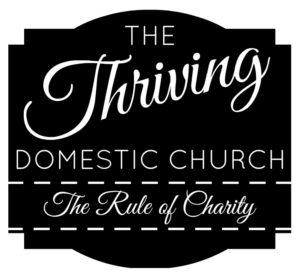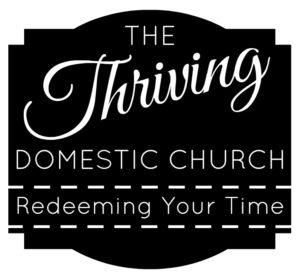 As in life, we all need rules in our homes. Everything and everyone would decend into chaos without them. So, as parents, we discern the best rules and routines to establish in our family life. No doubt we come up with good ones that serve admirable purposes. But it can be easy to lose sight of the fact that there is one rule that should govern and give meaning to all others — the rule of charity.
As in life, we all need rules in our homes. Everything and everyone would decend into chaos without them. So, as parents, we discern the best rules and routines to establish in our family life. No doubt we come up with good ones that serve admirable purposes. But it can be easy to lose sight of the fact that there is one rule that should govern and give meaning to all others — the rule of charity.
Love. “For the greatest of these is love,” writes the Apostle Paul in his first letter to the Corinthians. One of the reasons we establish rules in our households is to support the development of virtue in all its members. However, it is impossible to truly develop any other virtue without love. For as St. Paul says earlier in that same passage, though I may do any number of worthy things “but have not love, I am nothing.”
I recently came across these words of St. Vicent de Paul:
“Charity is certainly greater than any rule. Moreover, all rules must lead to charity.” (Epistle 2546)
I sat with these words for a moment, contemplating their relevance to my family’s life. Most of our rules and routines at home stem from a spirit of love. In fact, because we love our children we establish rules that will move them toward truth, goodness, and beauty. But I realize that in the middle of enforcing rules and the disciplining that comes when they are broken, I can often find myself removed from (dare I say in conflict with) the loving intentions that birthed the rules from the beginning. Continue reading

 I recently held a local
I recently held a local